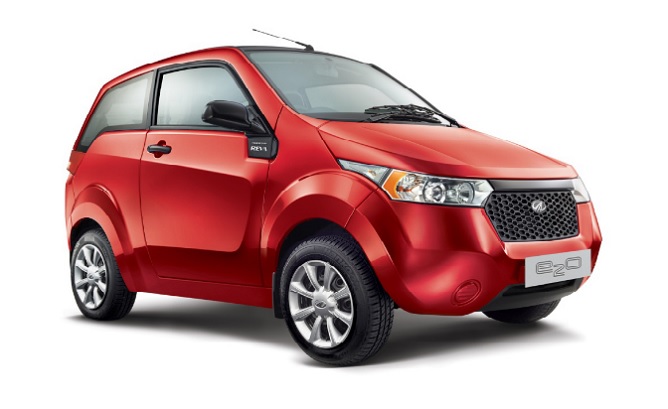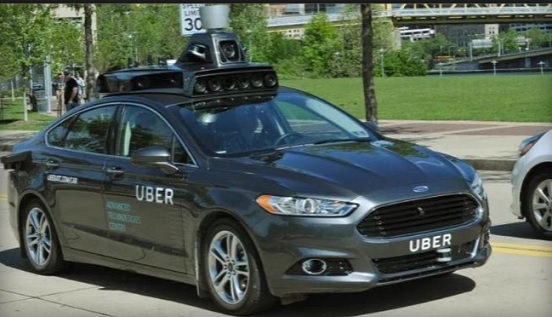Mahindra and Ford developing EV: Mahindra Group and Ford Motor Company today announced they’ll be jointly developing new SUVs and a small  electric vehicle. The companies see it as an opportunity to leverage Ford’s global reach and expertise and Mahindra’s scale in India and its successful operating model. One of the SUVs will be a midsize sport utility vehicle built on the Mahindra platform; it will be sold independently by both companies as separate brands. They’ve also agreed to evaluate co-development of a compact SUV and electric vehicle. They’ll also be working on connected car solutions for consumers. Mahindra has been bringing EVs to the Indian market in recent years, including the e20 through its Reva subsidiary.
electric vehicle. The companies see it as an opportunity to leverage Ford’s global reach and expertise and Mahindra’s scale in India and its successful operating model. One of the SUVs will be a midsize sport utility vehicle built on the Mahindra platform; it will be sold independently by both companies as separate brands. They’ve also agreed to evaluate co-development of a compact SUV and electric vehicle. They’ll also be working on connected car solutions for consumers. Mahindra has been bringing EVs to the Indian market in recent years, including the e20 through its Reva subsidiary.
Outlander PHEV important for Mitsubishi sales: The Mitsubishi Outlander plug-in hybrid crossover vehicle could a “halo vehicle” for the brand in the U.S. to help increase sales. Hitting 130,000 vehicles sold per year in the U.S. is part of a three-year strategy unveiled late last year. The all-new Eclipse Cross crossover vehicle will also help increase sales, said Don Swearingen, COO of Mitsubishi Motors North America. The Outlander PHEV has seen strong sales results in Europe in recent years, and was finally launched in the U.S. late last year. It’s getting a national advertisement now in the U.S. and will have a national social media program, and some dealers are probably going to launch their own local market advertising programs to support Outlander PHEV sales, he said.
Investigating Uber autonomous vehicle fatality: Toyota Motor Co. has suspended its self-driving car test drives to assess the situation following the  pedestrian fatality in Tempe, Ariz. That fatality involving an Uber test vehicle and driver prompted the ride-hailing firm to suspend its tests in Tempe, Ariz., Pittsburgh, and San Francisco. Toyota has put its fleet of autonomous test vehicles on hold in Ann Arbor, Mich., and in the San Francisco area. Self-driving startup NuTonomy has put its Boston test vehicles on hold after city officials requested it after the Arizona fatal crash. Ford and General Motors are continuing their tests on public roads; Waymo and Lyft declined to comment on the status of their self-driving car test fleets since the fatal Uber collision.
pedestrian fatality in Tempe, Ariz. That fatality involving an Uber test vehicle and driver prompted the ride-hailing firm to suspend its tests in Tempe, Ariz., Pittsburgh, and San Francisco. Toyota has put its fleet of autonomous test vehicles on hold in Ann Arbor, Mich., and in the San Francisco area. Self-driving startup NuTonomy has put its Boston test vehicles on hold after city officials requested it after the Arizona fatal crash. Ford and General Motors are continuing their tests on public roads; Waymo and Lyft declined to comment on the status of their self-driving car test fleets since the fatal Uber collision.
There was a safety driver behind the wheel at the time of the Uber fatality, which raises the question of what the driver should have done to intervene; and if the driver would have been unable to stop the collision. Tempe police reported that a video from the Uber self-driving car that struck and killed a woman on Sunday shows her moving in front of the self-driving car suddenly, a factor that will affect conclusions made by investigators. Since then, more news has been reported on the findings. The onboard cameras showed that the operator didn’t have his eyes on the road, and that the pedestrian was visible for at least a second before the crash took place.
The National Transportation Safety Board opened an investigation into the fatal accident earlier this week. It’s the second autonomous vehicle technology fatality being investigated by the NTSB after the May 2016 crash that killed a Tesla driver while using the Autopilot semi-autonomous system. In September, NTSB Chairman Robert Sumwalt said operational limitations in the Tesla Model S played a major role in the May 2016 fatal crash. In January, the U.S. National Highway Traffic Safety Administration and NTSB sent investigators to research a crash that took place that month between a Tesla vehicle traveling in semi-autonomous mode and a fire truck in California.



